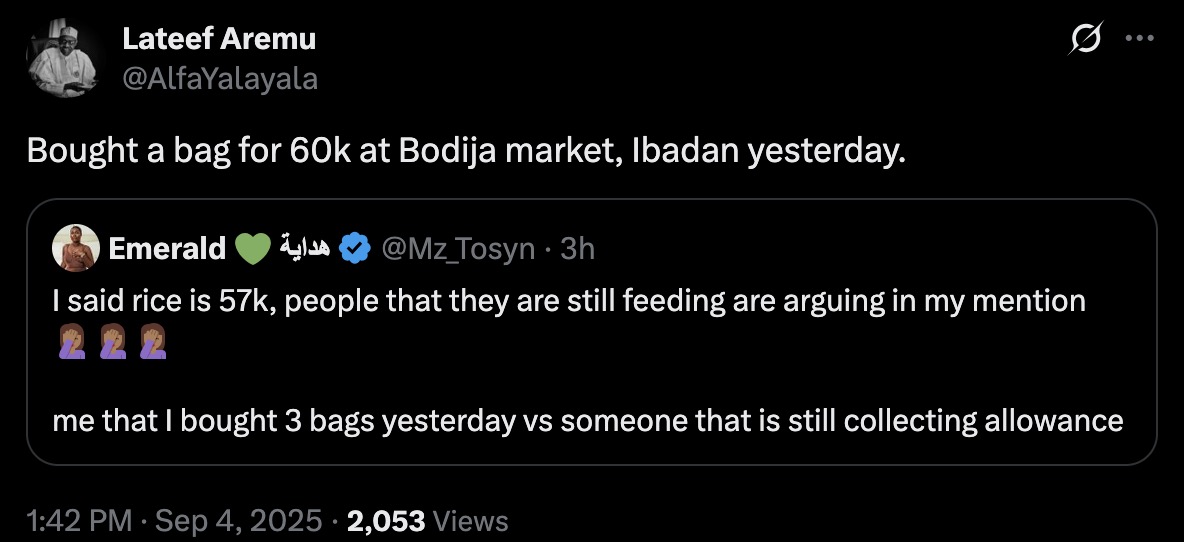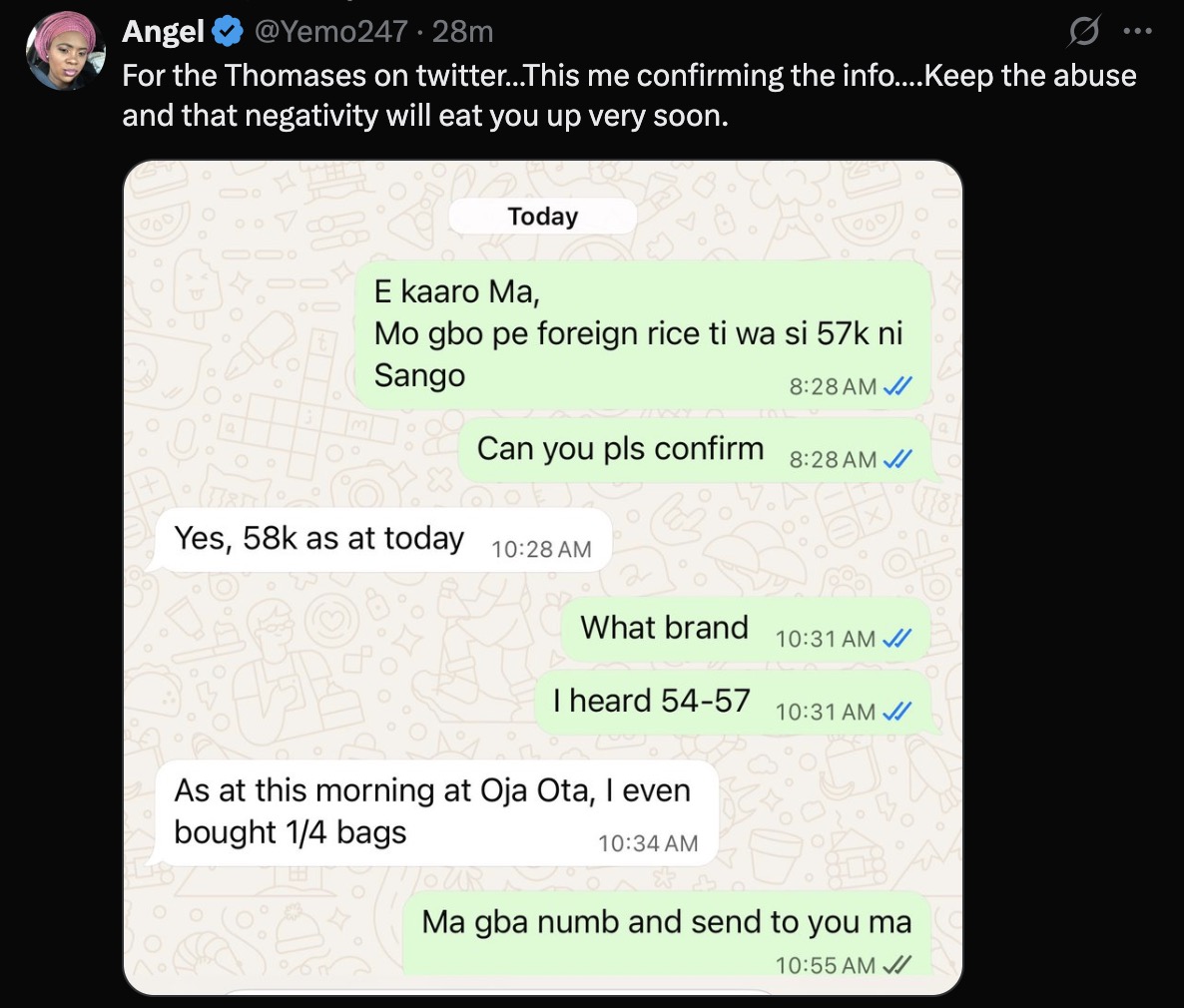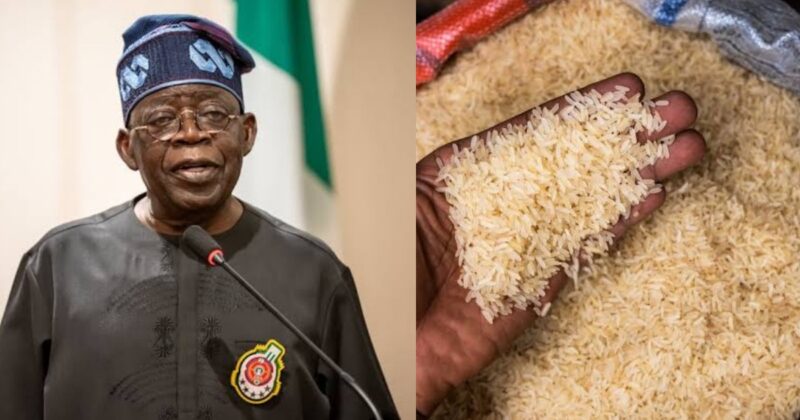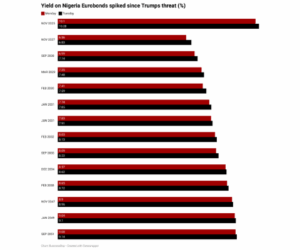Social media has erupted with mixed reactions after reports emerged that the price of imported rice has dropped significantly in some Nigerian markets.
On Thursday morning, market surveys, including at Sango Ota market, showed prices of a 50kg bag of imported rice dropped from between ₦85,000 – ₦90,000 to between ₦56,000 – ₦62,000.
The development sparked jubilation among some supporters of President Bola Tinubu, who credited his administration for keeping its promise to tackle inflation.
On X (formerly Twitter), user @UnclePamilerin wrote: “Rice prices are finally dropping, minimum wage can buy a bag now. Step by step, we’re getting there. Nigeria will work in our lifetime.”

Another user, @Mz_Tosyn, echoed the optimism: “I said rice is 57k, people that they are still feeding are arguing in my mention 🤦🏾♀️. Me that I bought 3 bags yesterday vs someone that is still collecting allowance.”


However, critics dismissed the celebration as misplaced, pointing out that rice prices are still disproportionately high compared to previous administrations.
Critics ridicule celebration over drop in price of rice
@Uptownoflagos argued: “You’re celebrating that minimum wage for a month can now buy a bag of rice? Where’s 10 years ago, minimum wage could buy 3 bags of rice, transport, feed and 5% for savings. Are we playing in this country?”
Similarly, @PDPRepublic wrote: “APC influencers trying to convince Nigerians that Tinubu is doing well. 🤡.”
@_Kamor questioned: “So…. boil rice in cold water and eat?!? How much is propane? How much is electricity fee? Tomato? Oil? How much is TP to work?”
Mista_Sean added: “Youths like this are the reason the political class will always have their ways with corruption and bad leadership.”
@smiling_dictato noted: “This guy is a big fool, not talking about the stupid taxes being imposed on us every two days. Yehyeh minimum wage can buy a bag of rice now, because na only bag of rice you go chop for the month.”
The debate shows the divisions among Nigerians over Tinubu’s economic policies, with many still struggling under rising food, energy, and transportation costs despite the drop in rice prices.








